77 F. high temperature Friday in St. Cloud.
79 F. average high on June 19.
78 F. high on June 19, 2014.
June 19, 1955: Hailstones the size of hen's eggs were dropped in Roseau County.
Old Husbands' TalesThere's a lot of bad, outdated information out there - why should weather be any different?
A
few Oldies but Moldies: "There's a local tornado alley in the metro
that runs from Lake Minnetonka to Fridley!" Wrong. For the past 40-50
years you could make a case, but a longer, historical examination
confirms no "favored communities" for metro-scale twisters.
"The
southwest corner of your basement is the safest place to ride out a
tornado." Nope. New studies confirm the safest spot from falling debris
is your basement, under the stairs.
"Open up windows to relieve
air pressure before a tornado strikes!" Bad idea. New research shows
that opening a few windows won't make a difference, structurally. It's a
wild goose chase.
"A greenish-yellow sky before a tornado?" True.
White light filtered through large hailstones can give the sky before a
tornado a downright evil appearance.
T-storms this morning give
way to some sticky afternoon sun. Expect a streak of low 80s next week,
but no stinking-hot weather is brewing between now and the
4th of July.
For
the record July is the hottest month of the year and I see signs of
heat building in 2-3 weeks. Enjoy the weather honeymoon. No complaints!
Crops In Great Shape.
Dr. Mark Seeley takes a look at soil moisture, which is now in very
good condition across most of Minnesota. The drought is over. Here's an
excerpt from this week's edition of
Minnesota WeatherTalk: "
Early
planting and nearly seasonal temperatures with continued adequate
rainfall across the state have promoted very good prospects for
Minnesota crops this year. With 77 percent of the MN corn crop in good
to excellent condition and 74 percent of the soybean crop in good to
excellent condition, crop producers and consultants are pleased with the
growing season so far. Soil moisture storage is adequate in most areas
of the state. Farmers are trying to catch up on weed control with
cultivation or use of post-emergence herbicides. Some areas of the state
have already received over 4 inches of rainfall this month, including
5.68" at Melrose, 4.45" at Sartell, 4.35" at Waseca, 4.28" at Owatonna,
4.06" at Austin, 4.47" at Caledonia, 4.28" at Zumbrota, and 5.11" at
Theilman..."
The Flood of 2012, Three Years Later. The Duluth News Tribune
has a good summary of the historic flood that struck Duluth in late
June, 2012, and recovery efforts since the deluge. Here's the intro: "
Three years ago today, June 19, storm clouds billowed into the skies above the Northland and rain started to fall.
Over and over and over, well into the next day, downpours soaked
Duluth, Superior, Carlton County, the North Shore and surrounding areas.
Streets turned into streams, and streams turned into torrents. Homes
and businesses were ruined, and lives of many Northland residents were
upended — but, fortunately, not lost..."
Photo credit above: "
Onlookers
take in the scene of a car that fell into a huge sinkhole on Skyline
Parkway at 9th Avenue East in Duluth after the June 2012 flood.
Rainwaters undercut the ground beneath to create the weak spot in the
pavement. The car's owners were from Seattle and came to Duluth to run
Grandma's Marathon and visit family." (File photo / Bob King).
Becoming Volatile.
Yesterday evening's high-resolution 1 KM visible cloud loop, courtesy
of NOAA and AerisWeather, shows the thunderheads that bubbled up over
southwestern Minnesota responsible for up to 1.75" diameter hail -
firing up along the leading edge of a steamy hot front.
NAM Guidance.
Watch the remains of "Bill" track from south of St. Louis right up the
Ohio River Valley, spiking thunderstorms from Washington D.C. to
Philadelphia by Sunday, where flash flooding can't be ruled out.
Meanwhile T-storms push east of Minnesota by midday, but a few spotty
cells may pop up by evening, again Sunday. It's that time of year when
it's difficult to promise a completely-dry day. Loop: NOAA.
Just About Average.
Thhe average high now is approaching 80F and temperatures vary a few
degrees either side of average into late June; not too hot, not too
cold. Showers linger Monday before a temporary dry spell Tuesday and
Wednesday; another surge of attempted summer heat by the end of next
week. But nothing whine-worthy, not yet. MSP meteogram: Weatherspark.
Slow Warming Trend Early July?
The GFS 500 mb predicted winds, valid the evening of July 3, shows the
jet stream (finally) lifting northward into Canada, allowing warmer air
to expand into the Upper Midwest. June was temperature - I have a
feeling July will be considerably hotter and more uncomfortable, even
though the axis of heat will probably set up from California to
Missouri.
This Year Is Headed For The Hottest On Record, By A Longshot. Here's the intro to an update at
Bloomberg Business: "
We
broke the record. Again. Last month was the hottest May on record, and
the past five months were the warmest start to a year on record,
according to new data released by the National Oceanic and Atmospheric
Administration. It's a continuation of trends that made 2014 the most
blistering year for the surface of the planet, in records going back
to 1880..."
Graph credit above: GISS temperature departure from normal in C (red line is January through May temperature departures only).
Andy Skuce,
Skeptical Science.
May Continues Trend of Record Hot 2015. Following up on the story above,
Climate Central puts the monthly temperature departures into perspective: "...
What
is particularly notable about this year’s records is that how much they
are beating the previous ones by, Jessica Blunden, a climate scientist
with ERT, Inc., at NOAA’s National Center for Environmental Information, said in an email. The growing El Niño
in the Pacific Ocean is playing a role in driving that record heat, as
the climate phenomenon, most notably characterized by
warmer-than-average tropical ocean waters, tends to boost global
temperatures. “I wouldn't be at all surprised if the margin of breaking
records for the year-to-date continues to grow, especially if El Niño
becomes as strong as some experts are predicting,” Blunden said..."
Image credit above: "
Map that shows how temperatures around the globe varied from average during the period from January through May 2015." Credit: NOAA.
NOAA Drones Drop In On Hurricanes. GCN has the story - I need a few of these to patrol the neighborhood, come to think of it. Here's the intro: "Just in time for this year’s hurricane season, the National Oceanic and Atmospheric Administration will be upgrading
its Coyote drones for storm research and climate data collection.
Raytheon will deliver three unmanned aerial systems with improved
communications and integrated metorologic sensors for storm research.
The Coyote unmanned aircraft, at only three feet long and between 12 and
14 pounds, can carry either electro-optical or infrared cameras and
data transmitter payloads. They are capable of speeds between 60 and 85
knots and a ceiling of 20,000 feet..." (Image credit: NOAA).
Master Planned (California) Community At Risk Of Losing All Water Within Days.
What happens when a city runs out of water? At the rate we're going
it's inevitable, and California may be the spot. Here's the intro to a
story at The Los Angeles Times: "When
the state last week took the rare step of curtailing the water rights
of more than 100 irrigation districts and growers, it appeared that
agricultural areas would be the hardest hit. But now, an upscale
master-planned community of 15,000 residents in San Joaquin County is
facing the loss of all water supplies within days — prompting a frantic
search for new sources..."
Photo credit above: "
The
master-planned community Mountain House is at risk of losing its water
supply. About 160 local farmers are also affected by the curtailment
order." (Robert Durell / Los Angeles Times).
Drought Emergency.
As of this week over 98% of California is in drought; 46.73% of the
state in exceptional drought, the most serious drought designation. Will
El Nino spark torrential rains by late autumn and winter? It's
possible, but by no means a sure thing.
Concentrated Drought.
The recent (monsoon) rains east of the Rockies have virtually erased
drought for most of the United States; still a few pockets of dry
weather from the Carolinas into the Florida Panhandle, but crop moisture
is in good shape (with the exception of Texas and Oklahoma where there
is still standing water from recent floods tied to extratropical storm
"Bill"). The latest U.S. Drought Monitor is
here.
85% Chance El Nino Lingers Into Next Winter.
The warm phase of ENSO in the Pacific is forecast to peak at the end of
2015 or beginning of 2016. According to NOAA there is now a 90% chance
of El Nino into the autumn months; an 85% probability this warm cycle
will linger into next winter. That could mean more rain for California
(although this is far from a certainty - every El Nino is different) and
it sways the odds of a milder winter slightly in our favor. Graphics
above: NOAA.
* More details on El Nino below, courtesy of IRI, the
International Research Institute for Climate and Society at Columbia University:
- El Niño and La Niña events tend to develop during the period Apr-Jun and they
- Tend to reach their maximum strength during Dec-Feb
- Typically persist for 9-12 months, though occasionally persisting for up to 2 years
- Typically recur every 2 to 7 years
 An Average Summer?
An Average Summer?
Oh to be average again, not flip-flopping back and forth between
drought and flood. Based on a strengthening El Nino NOAA CPC is
predicting much wetter than normal conditions into August from the
central Rockies into the Plains and much of the southern USA, the result
of a stronger, El Nino-spiked southern branch of the jet stream.
Temperatures are forecast to be cooler into August over the southern
Plains, but warmer for the southeast, much warmer for the west coast and
Alaska.
Who Owns Your Face? Weak Laws Give Power to Facebook.
They're putting the FACE into Facebook! The privacy challenges get more
and more interesting with time. Yes, tech (and social media
specifically) is a double-edge sword. Here's the intro to a story at
Fortune: "
In
a fateful moment for privacy, Facebook’s “Moments” uses facial
recognition to expose where people went and who they were with. What a
bad week for privacy. Consumer watchdogs gave up on government talks
over facial recognition software after industry groups appeared to
reject even basic restrictions on face-scanning. Meanwhile, Facebook
rolled out a new service called “Moments” that expands the use of the
company’s powerful “faceprint” technology..." (Image:
FourTwoNine).
Where In The World You're Most Likely To Be Working Too Much - Or Napping.
The concept of a 50-hour work week is foreign to most Russians, but
Turkey? Pretty much business as usual. Here's an excerpt from
Quartz: "...
There’s huge variation in work and leisure culture around the world, often as the result of legally prescribed
or enabled policies. Depending on where you are, working 50-plus hours a
week might make you a huge outlier, or comparatively normal, according
to the OECD’s updated Better Life Index, published last week..."
The Next Apple Watch Might Actually Be Cool.
Always wait for version 2.0. Facetiming on your wrist? Not sure I'd use
that Dick Tracy feature, but you never know. Here's an excerpt from
Huffington Post: "...
Mark Gurman at 9to5Mac reported Thursday that Apple will release an "Apple Watch 2" next year. Hopefully no one expected their $17,000
"Apple Watch Edition" to last forever. The next version of the Apple
Watch will supposedly include a video camera, which would allow people
to make Facetime calls from their wrist. Try holding your arm up to your
face for more than 30 seconds to see if you'd be into that..."
Clear Victory: A Deep Dive Into The World's Most Prestigious Water-Tasting Competition.
BuzzFeed has the honors; here's the set-up to this curious story: "
For
25 years, the self-proclaimed “Oscars of water” have been held in the
tiny West Virginia town of Berkeley Springs. At a pivotal moment when
the bottled water industry is booming but the national narrative is all
about drought and environmental ruin, the stakes for perfecting the
taste of nothingness have never been higher..."
Animation credit:

TODAY: Morning T-storms, some PM sun. Winds: W 10. High: 81
SATURDAY NIGHT: Partly cloudy and humid. Low: 66
SUNDAY: Sunnier, drier, nicer day of the weekend. Winds: NW 5-10. High: 83
MONDAY: Another round of showers and T-storms. Wake-up: 67. High: 79
TUESDAY: Fleeting sunshine. Quick - mow the lawn! Wake-up: 61. High: 77
WEDNESDAY: Steamy, T-storms southern counties. Wake-up: 59. High: 81
THURSDAY: Edge of stickiness. Spotty T-storms. Wake-up: 66. High: 82
FRIDAY: Sunny start, PM storms. Wake-up: 62. High: 79
* Shelf cloud photo credit: A.J. Lane.
Climate Stories...
"You
cannot access wisdom by the megabyte. Wisdom is concerned with how we
relate to people, to the world, and to God." - Edmund P. Clowney
A Test of Faith: Pope Francis Puts 2016 GOP Hopefuls On The Defensive.
The Washington Post
reports on the created by the latest encyclical on the environment and
climate change, and whether Catholic GOP presidential contenders will
pay attention. Here's a clip: "...
Until recently, Democrats usually
were the ones to feel the most heat. But now it is the turn of
Republicans, thanks to Pope Francis, the charismatic and activist
pontiff who is set to visit the United States in September. The pope’s 192-page call to action Thursday,
which blames the burning of fossil fuels and human activity for climate
change, is the latest example of how Francis has become part of the
political debate in a season in which no fewer than five Catholics may
seek the Republican presidential nomination..."
Photo credit above: "
In
this May 21, 2015 file photo, House Speaker John Boehner of Ohio speaks
during a news conference on Capitol Hill in Washington. Pope Francis'
call for dramatic action on climate change drew a round of shrugs from
congressional Republicans on Thursday, while many of the party's
presidential candidates ignored it entirely. Boehner, a Catholic who
invited the pontiff to address Congress later this year, said the pope
is not afraid to challenge thinking on various issues. "I respect his
right to speak out on these important issues," Boehner said, but he
demurred when asked whether Francis' views, made public in an encyclical
released Thursday, might spur legislative action by the Republicans who
run Congress." (AP Photo/Susan Walsh, File).
Climate Change and Moral Responsibility. Here's a snippet of an Op-Ed at
The New York Times: "...
Basic
human rights — such as access to safe water, clean air and sufficient
food — should be available to everyone without distinction or
discrimination. Because of our faith in God as creator, redeemer and
sustainer, we have a mission to protect nature as well as human beings.
The obligation of all human beings is to work together for a better
world, one in which all human beings can flourish; our Christian
vocation is to proclaim the Gospel inclusively and comprehensively..."
Pope Francis, in Sweeping Encyclical, Calls for Swift Action on Climate Change. The New York Times has a
good summary of Thursday's announcement from The Vatican; here's the intro: "
Pope Francis
on Thursday called for a radical transformation of politics, economics
and individual lifestyles to confront environmental degradation and climate change,
as his much-awaited papal encyclical blended a biting critique of
consumerism and irresponsible development with a plea for swift and
unified global action.The vision that Francis outlined in the 184-page
encyclical is sweeping in ambition and scope: He described a relentless
exploitation and destruction of the environment, for which he blamed
apathy, the reckless pursuit of profits, excessive faith in technology
and political shortsightedness. The most vulnerable victims are the
world’s poorest people, he declared, who are being dislocated and
disregarded..."
Photo credit above: AP Photo/Gregorio Borgia.
Encyclical Letter: "Laudato Si" Pope
Francis is correct: climate change is a scientific challenge, an
economic challenge, and ultimately a spiritual and moral challenge. If
you have the time and interest read Pope Francis's Encyclical for
yourself; no media spin or interpretation. The 184 page PDF is
here.
Key Quotes From Pope Francis' Encyclical Letter. The excerpts below are courtesy of Rev. Mitch Hescox at EEN, the
Evangelical Environmental Network. Full disclosure: I'm on their Board of Directors:
“The
destruction of the human environment is extremely serious, not only
because God has entrusted the world to us, men and women, but because
human life is itself a gift, which must be defended from various points
of debasement.”
“Outside the Catholic Church, other Churches and
Christian communities- and other religions as well- have expressed deep
concern and offered valuable reflections on issues which all of us find
disturbing.”
“He [St. Francis] shows us just how inseparable the
bond is between concern for nature, justice for the poor, commitment to
society, and interior peace.”
“The world is a joyful mystery to be contemplated with gladness and praise.”
“..to
become painfully aware, to dare to turn what is happening to the world
into our own personal suffering and thus to discover what each of us can
do about it.”
“...the climate is a common good.”
“It [climate change] represents one of the principal challenges facing humanity in our day.”
“The
warming caused by huge consumption of the world, especially Africa,
where a rise in temperature, together with drought, has proved
devastating to farmers.”
“As the United States Bishops have said,
greater attention must be given to ‘the needs of the poor, the weak,
and the vulnerable in a debate often dominated by powerful
“Still less is there room for the globalization of indifference.”
“We still lack the culture needed to confront this crisis.”
“Many
people will deny doing anything wrong because distractions dull our
consciousness of just how limited and finite our world really is.”
“For
all of our limitations, gestures of generosity, solidarity, and care
cannot but well up within us, since we were made for love.”
“This
is the way human beings contrive to feed their self-destructive vices:
trying not to see them, trying not to acknowledge them, delaying the
important decision, and pretending that nothing will happen.”
“Rather,
all creatures are moving forward with us and through us towards a
common point of arrival, which is God, in that transcendent fullness
where the Risen Christ embraces and illuminates all things.”
“Jesus
lived in full harmony with creation and others were amazed: What kind
of man is this? Even the winds and the waves obey him! (Mt 8:27)”
“A certain way of understanding human life and activity has gone awry, to the serious detriment of the world around us.”
Pope Urges "Broad, Cultural Revolution" To Save Planet, Fix "Perverse" Economy That Harms Poor.
The rich can build higher walls, move to higher ground, they will be
able to "adapt". The poor? Not so much. Those with the least are the
first to be impacted by rising seas, more extreme storms and more
intense heat and drought. Here's a slightly different perspective from
The Star Tribune: "
In
a sweeping environmental manifesto aimed at spurring concrete action,
Pope Francis called Thursday for a bold cultural revolution to correct
what he described as a "structurally perverse" economic system where the
rich exploit the poor, turning Earth into an "immense pile of filth."
Francis framed climate change as an urgent moral issue to address in his
eagerly anticipated encyclical, blaming global warming on an unfair,
fossil fuel-based industrial model that harms the poor most..."
File photo credit above: AP Photo/Andy Wong.
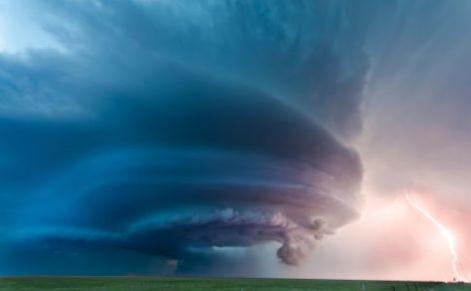
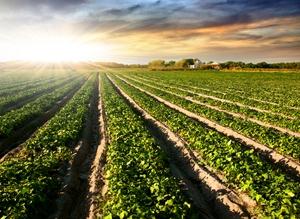
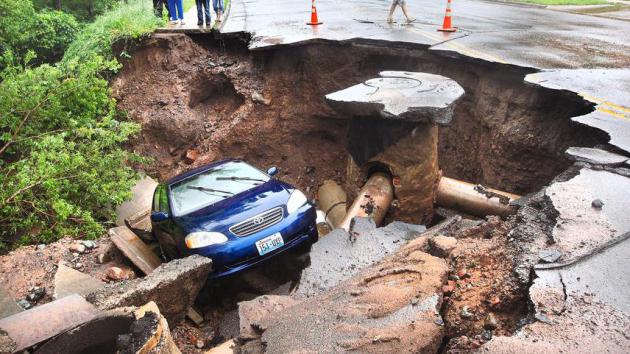
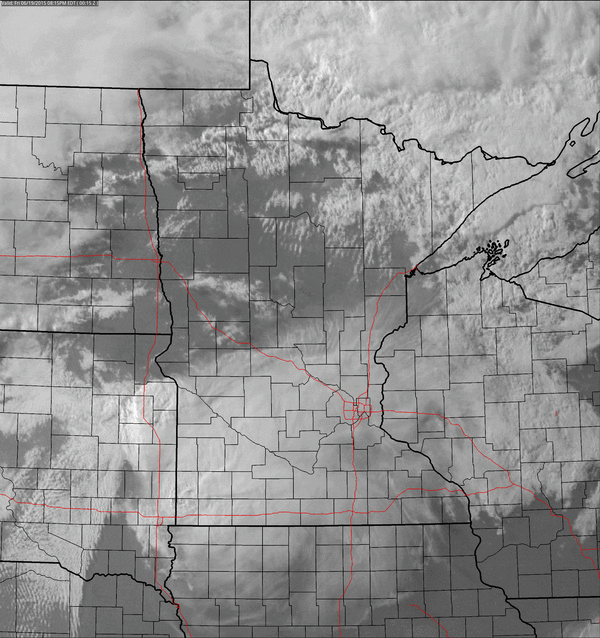
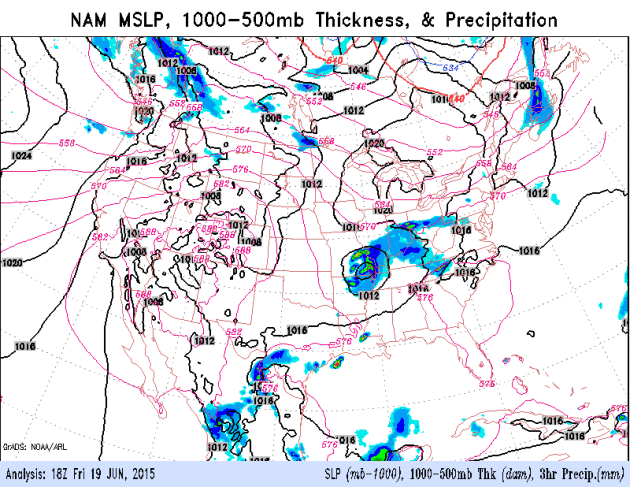
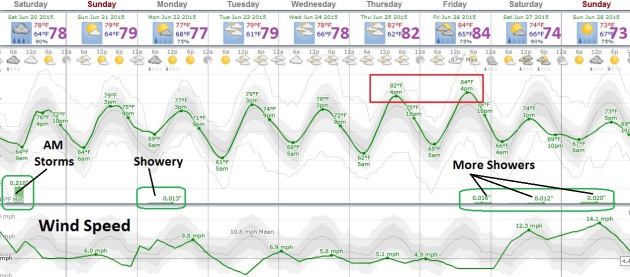
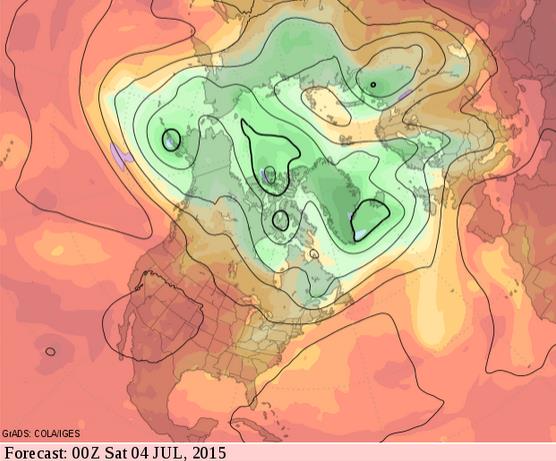
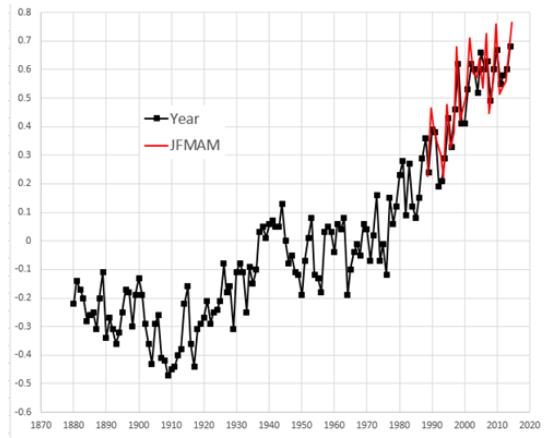
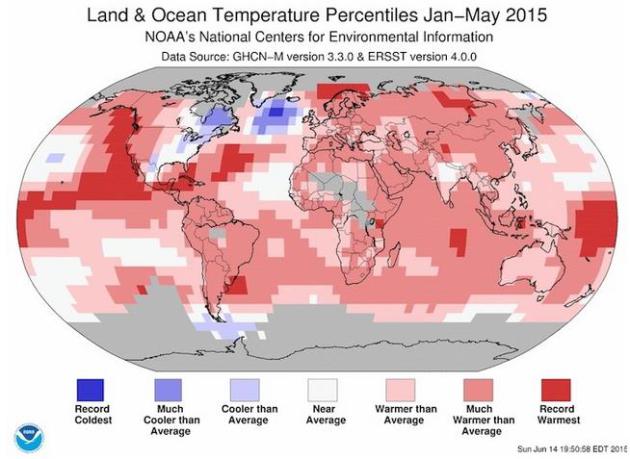
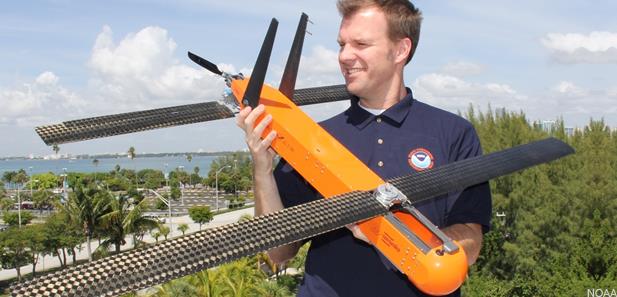
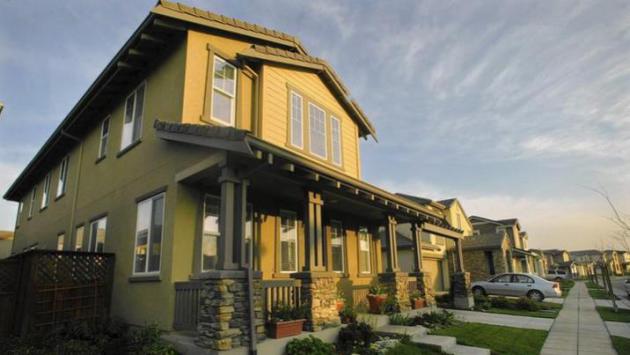
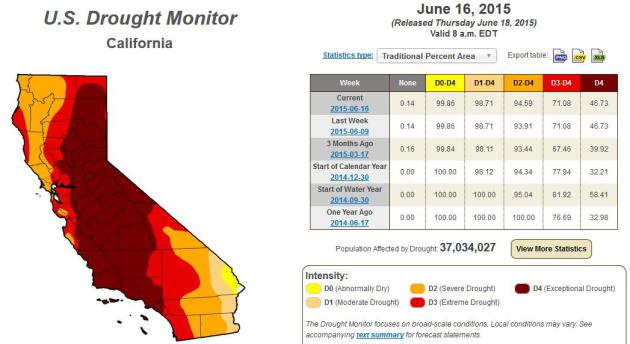
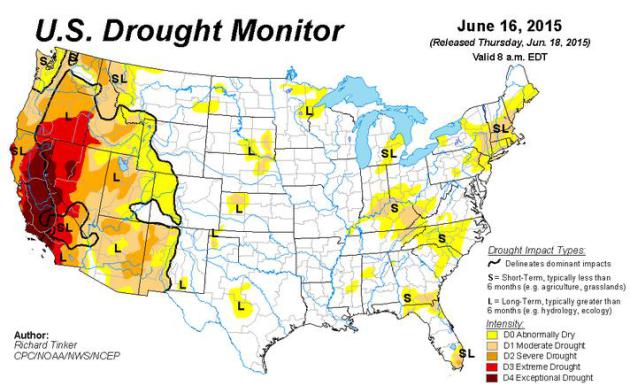
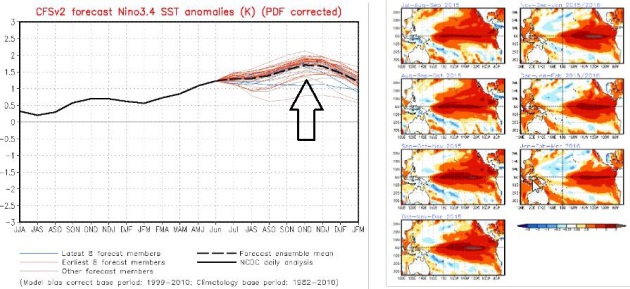


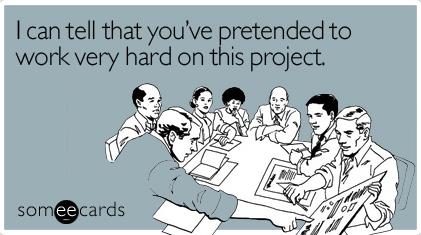




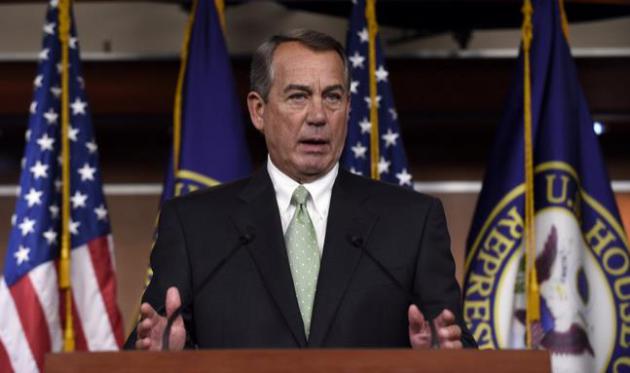
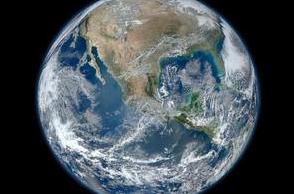
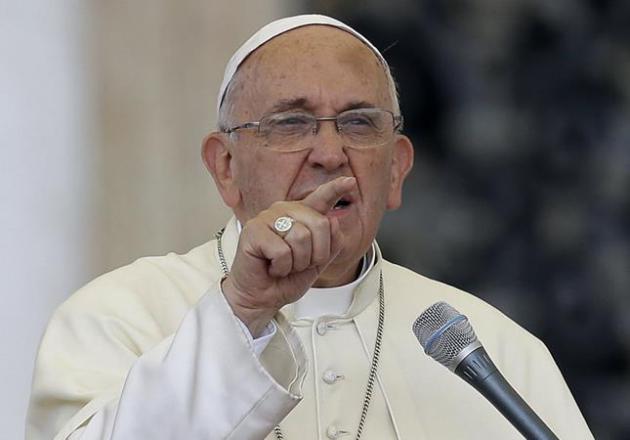
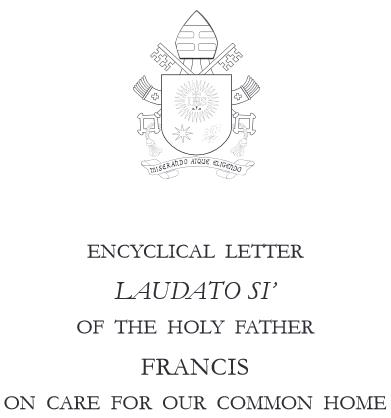
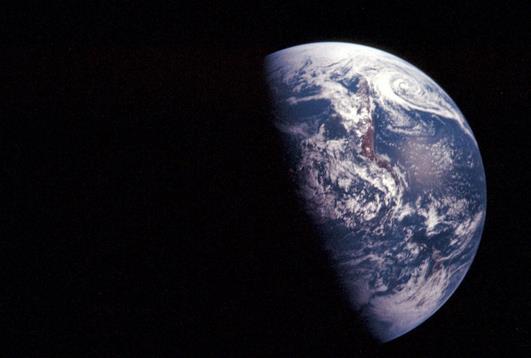
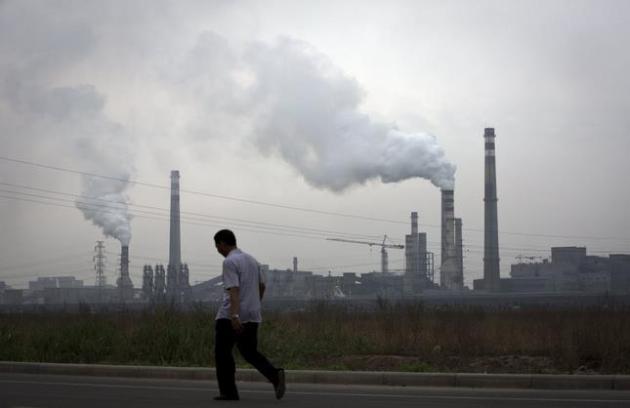
No comments:
Post a Comment